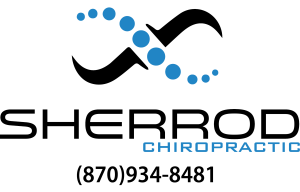Understanding the Mystery of Vertigo
By Nataliya Schetchikova, PhD
People with vertigo know that the law of gravity prevails, but their brains get confused. They experience an illusion of movement, feeling like they are tilting in space, or that the world is spinning or moving around them. Nausea, sweating, headaches, vomiting and fatigue may add to their discomfort.
Causes of Vertigo
* Vertigo can be caused by many problems, most of which originate in the peripheral or central nervous system.
* The causes of vertigo that stem from the peripheral nervous system include benign paroxysmal positional vertigo (BPPV), acute vestibular neuronitis, labyrinthitis and Ménière’s disease.
* Acoustic neuroma, migraines, cervicogenic vertigo and multiple sclerosis are all related to the central nervous system.
* Vertigo can also be caused by a wide variety of medications such as antidepressants, anticonvulsants, antihypertensives, diuretics, barbiturates, salicylates (e.g., aspirin), sedatives or hypnotics, some prescription and over-the-counter cold medicines, and some antibiotics and antineoplastics.
* Diabetes mellitus, hypothyroidism, high blood triglycerides, hypoglycemia, and food allergies or gluten sensitivity can also cause or worsen vertigo.
* Motor vehicle accidents, falls or other types of traumas or illnesses can also be associated with vertigo.
* To diagnose the cause of vertigo, your health care provider will perform an examination, including a variety of positioning tests, to check if they will reproduce the sensation of motion. Other tests may also be necessary.
Benign Paroxysmal Positional Vertigo
* About 65 percent of vertigo is diagnosed as Benign Paroxysmal Positional Vertigo (BPPV)—a result of calcium debris in the inner ear.
* BPPV is usually treated through the Epley maneuver—a procedure in which the patient is rapidly moved from lying on one side to lying on the other, to move the calcium debris to a less sensitive location in the inner ear.
* Studies show that up to 80 percent of patients recover after a single treatment with Epley maneuver, and most BPPV cases respond to two to three treatments with Epley.
* Epley maneuver is contraindicated in patients with severe carotid stenosis, heart diseases and severe neck problems, such as cervical spondylosis with myelopathy or advanced rheumatoid arthritis.
* Even without treatment, BPPV tends to resolve in weeks or months and also has a tendency to recur.
* Vestibular rehabilitation exercises (called the Brandt-Daroff exercises) can also be performed at home to help treat BPPV.
Other Types of Vertigo
* Treatment for vertigo caused by other conditions depends on the individual case.
* Ménière’s disease patients can benefit from a low-salt diet.
* Treatment for vertigo associated with migraine headaches should include dietary changes, such as reduction or elimination of aspartame, chocolate, alcohol and caffeine, in addition to exercise, stress reduction, adequate sleep, and vestibular rehabilitation exercises.
* Vestibular neuronitis and labyrinthitis, which are often attributed to viral infections, can also be treated with vestibular exercises.
* Working with your doctor of chiropractic to improve postural issues can also bring relief to the patients whose vertigo is exacerbated by sedentary lifestyle or working in certain positions for extended periods.
* In patients with cervicogenic vertigo, a general ergonomic assessment of work and life activities can help identify the factors contributing to the problem.
Nutrition and Stress Reduction
* Alcohol, nicotine, fried foods and excessive salt intake are potential sources of trouble for patients of vertigo.
* Vincopectine, vitamin B6 and ginkgo biloba may be helpful in reducing vertigo.
* Chromium may be helpful in patients whose vertigo is caused by a blood sugar imbalance.
* Physical exercise and meditation, adequate sleep and other stress reduction techniques can all help contribute to recovery from vertigo and should be a part of the treatment regimen.
* Your doctor of chiropractic can help create an appropriate exercise program for you and counsel you regarding healthy lifestyle and stress relief.
Red Flags
Vertigo patients who present with the following signs should immediately go to the emergency room:
* double vision
* headache
* weakness
* difficulty speaking
* difficulty waking up or staying awake
* difficulty walking
* inappropriate actions
* difficulty controlling arms or legs
* abnormal eye movements.



